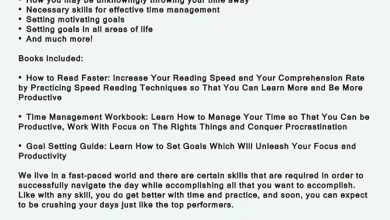How Education Helps In Establishing Self Esteem?

Self-esteem is an essential component of an individual’s mental and emotional well-being. It is the foundation of a person’s self-worth and influences their behavior, decisions, and relationships.
While many factors contribute to the development of self-esteem, education is one of the most significant. But how education helps in establishing self esteem?
Education helps establish self-esteem by providing knowledge and skills, increasing self-confidence, and allowing individuals to set and achieve goals.
In this blog, we will explore how education can positively impact self-esteem and how it can contribute to personal growth and development.
What Does Self Esteem Mean In Education?
Self-esteem in education refers to the level of confidence, skill, and strategy a student has in learning. It is crucial for schools to care about their students’ self-esteem as it affects their motivation, mental health, and lifelong learning.
Effective strategies and interventions, such as self-regulated and emotional learning, can help students develop their self-esteem. Different journals in psychology and education provide research and evidence-based strategies for school staff to support students’ sense of school belonging and social skills.
Relation Between Education and Self-Esteem?
Research suggests that there is a positive relationship between education and self-esteem. Education can provide individuals with the skills and knowledge needed to feel confident and capable, which can contribute to higher levels of self-esteem.
Additionally, schools and educational institutions can promote self-esteem through care, motivation, and social skill development. Effective strategies, such as self-regulated and emotional learning, can also enhance self-esteem.
Intervention and support, such as multi-component and self-management support interventions, can also effectively improve self-esteem. Overall, education can be a powerful tool in promoting self-esteem and lifelong learning.
How Education Helps In Establishing Self Esteem?
Education is a powerful tool that can help individuals establish and maintain healthy levels of self-esteem. Here, we will explore how education can help individuals build their self-esteem.
Providing Knowledge and Skills
Education provides individuals with knowledge and skills that they can use to achieve their goals. By learning new things, individuals can gain a sense of accomplishment and pride in their abilities. This feeling of achievement can lead to increased self-confidence and self-esteem.
Increasing Self-Confidence
As individuals learn new skills and gain knowledge, they become more self-assured in their abilities. This increased self-confidence can lead to a more positive self-image and higher levels of self-esteem. Individuals who feel confident in their abilities are more likely to take on new challenges and try new things, which can further enhance their self-esteem.
Allowing Individuals to Set and Achieve Goals
Education provides individuals with the opportunity to set and achieve goals. By setting realistic and achievable goals, individuals can gain a sense of accomplishment and self-worth. Working towards a goal can also help individuals develop perseverance, determination, and resilience, all of which can contribute to healthy self-esteem.
Improving Social Skills
Education can also improve an individual’s social skills. Individuals can develop communication, collaboration, and leadership skills through interactions with peers and teachers. These skills can help individuals feel more confident in social situations and lead to more positive relationships, further enhancing their self-esteem.
Promoting Lifelong Learning
Education is not just a process that occurs during childhood and adolescence. Lifelong learning is an ongoing process that can help individuals stay engaged and active. Individuals can maintain a sense of purpose and accomplishment by continuing to learn and grow, contributing to healthy self-esteem.
How to Develop Self-Esteem In Education? [Effective Tips]
Educators, school staff, and parents can play a crucial role in promoting self-esteem in education by using effective strategies and interventions. Some of these strategies include:
- Encourage Skill Development: Students who feel competent and skilled in their abilities are more likely to develop self-esteem. Therefore, educators should encourage students to engage in activities that enhance their skills and abilities.
- Provide Social Support: Students who feel a sense of belonging and support from others are more likely to have high self-esteem. Educators and school staff should create a supportive environment where students feel valued and included.
- Foster Intrinsic Motivation: Students who are intrinsically motivated to learn and achieve have higher self-esteem. Therefore, educators should focus on fostering intrinsic motivation in students by providing opportunities for autonomy, competence, and relatedness.
- Use Positive Feedback: Positive feedback can enhance self-esteem by reinforcing students’ positive behaviors and accomplishments. Therefore, educators should provide regular positive feedback that is specific, genuine, and supportive.
- Teach Self-Regulation: Students who can regulate their emotions and behavior are more likely to have high self-esteem. Therefore, educators should teach self-regulation skills, such as mindfulness and emotion regulation.
Effective Strategies for Overcoming Self-Esteem Challenges in Education
Education can be challenging, especially when it comes to self-esteem. However, it is possible to overcome these challenges with the right approach and strategies. Here are some effective strategies to help you build your confidence, skills, and motivation in learning.
Develop Social Skills
Developing social skills is essential in building confidence and self-esteem in education. Joining clubs or groups that share similar interests can help develop social skills. Participating in extracurricular activities can also help make social connections and boost self-esteem.
Focus on Lifelong Learning
Lifelong learning is the process of acquiring knowledge and skills throughout life. It is a continuous learning process that can help boost self-esteem and confidence. When you focus on lifelong learning, you develop a growth mindset, which enables you to stay motivated to learn new things.
Seek Intervention
If you are struggling with self-esteem challenges, seeking intervention can be helpful. School staff, such as counselors or teachers, can provide intervention programs that help students build their self-esteem. These programs may include self-management support interventions or multicomponent interventions that are evidence-based and effective.
Practice Self-Care
Self-care is essential in maintaining good mental health, which is crucial in building self-esteem. Self-care involves caring for your physical, emotional, and mental health. This can be achieved by engaging in activities that bring you joy, such as exercise, meditation, or spending time with loved ones.
Find Motivation
Motivation is crucial in building self-esteem and confidence in education. Finding intrinsic motivation can help you stay motivated in the learning process. Intrinsic motivation involves engaging in activities that you find enjoyable or interesting without external rewards or incentives.
The Role Of Teachers And Parents In Nurturing Self-Esteem In Students And Children
Nurturing self-esteem in students and children is a crucial aspect of their development. Teachers and parents play a vital role in building and maintaining children’s self-esteem. Here are some ways teachers and parents can help nurture self-esteem in students and children.
Providing a Supportive Environment
One of the most important things teachers and parents can do to nurture self-esteem in students and children is to provide a supportive environment. This means creating a safe space where students and children feel comfortable expressing themselves and taking risks. Teachers and parents should also provide positive feedback and praise when students and children achieve their goals, no matter how small they may be.
Encouraging Autonomy
Another way to nurture self-esteem in students and children is to encourage autonomy. Teachers and parents should give students and children opportunities to make choices and decisions. This can develop a sense of control and ownership over their lives, leading to increased self-esteem.
Setting Realistic Expectations
Setting realistic expectations is crucial for building self-esteem in students and children. Teachers and parents should avoid setting too high or too low expectations. Instead, they should set goals that are challenging but achievable. This can help students and children develop a sense of competence and confidence in their abilities.
Fostering Positive Self-talk
Positive self-talk is an essential tool for nurturing self-esteem in students and children. Teachers and parents can help students and children develop positive self-talk by modeling and encouraging it in their children. This means using positive language and reframing negative thoughts and beliefs.
Emphasizing Effort Over Outcome
Finally, teachers and parents should emphasize effort over the outcome when nurturing self-esteem in students and children. Instead of focusing solely on grades or performance, they should celebrate the effort and hard work students and children put into their work. This can help students and children develop a growth mindset and a sense of pride in their accomplishments.
Read More:
How To Develop Leadership Skills In Students? A Comprehensive Guide
What Is The Difference Between Self Image And Self Esteem?
Why Is Teamwork Important For Achieving Goals?
Wrapping Up
The discussion above has shown how education helps in establishing self esteem. Education is a great way to build self-confidence and self-esteem. It helps create an individual’s sense of worth, security, and purpose.
Besides, you can develop the skills and knowledge necessary for success in life. Education helps develop empathy, improve communication, and build critical thinking and problem-solving skills, which are essential for personal growth and development.



